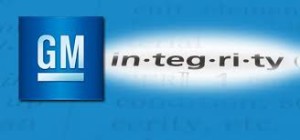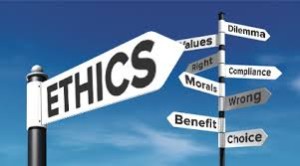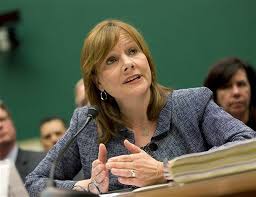The Absence of a CECO and the GM Fiasco
 This is a posting that I have wanted to write since the GM scandal occurred. I have to start with a rhetorical question – Would the GM debacle have occurred if GM had an independent and empowered Chief Ethics and Compliance Officer?
This is a posting that I have wanted to write since the GM scandal occurred. I have to start with a rhetorical question – Would the GM debacle have occurred if GM had an independent and empowered Chief Ethics and Compliance Officer?
The answer to this is not as easy as you think. Having an empowered CECO does not necessarily mean that all legal violations, code misconduct and other nefarious schemes will never occur. But the question is will the presence of an independent CECO reduce the risk of misconduct.
In the case of GM, the bad actors permeated GM’s organization. Of course, we all know the legal staff was handling sensitive tort litigation and was well aware of the ignition device problems. In addition, many engineers knew about the problem as well. Senior management, including the General Counsel, claim that they were in the dark. That has not been confirmed yet and you can bet that a lot of the people who were fired from GM are reviewing their notes and emails to determine what, if any, bargains they may be able to make with government investigators.
An independent and empowered CECO can be the critical lynchpin in the foster of a strong culture of ethics. The GM culture adhered to “the GM nod.” Meeting participants would agree on next steps or to take a course of action and then nothing would happen. This is all too familiar a scenario when it comes to corporate misconduct.
So imagine if instead of the GM nod, the culture turned to something new, such as doing the right thing or fixing problems when they occur.
 Assuming GM had a positive ethical culture, and that the CECO was promoting it within the organization with the help of GM senior management, do you really think GM’s engineer would have replaced the faulty ignition device, assigned it the same part number, and let the problem continue? Also, if the organization promoted a culture of ethics, do you really think the attorneys would be able to go on settling serious death litigation while knowing about the ongoing engineering problem?
Assuming GM had a positive ethical culture, and that the CECO was promoting it within the organization with the help of GM senior management, do you really think GM’s engineer would have replaced the faulty ignition device, assigned it the same part number, and let the problem continue? Also, if the organization promoted a culture of ethics, do you really think the attorneys would be able to go on settling serious death litigation while knowing about the ongoing engineering problem?
My rhetorical questions have been asked and hopefully mt point has been made. But who at GM should be held accountable. The GM fiasco is a poster child for the lack of an ethical culture and the absence of anything resembling accountability.
Senior management, including the CEO Mary Barra, are hiding behind claims of lack of knowledge. That is certainly one response but I am waiting for the other response from her and senior managers – why did they not have a culture of ethics and why has there not been anything resembling accountability extending into the C-Suite and senior managers?
So far, what we see from GM’s senior management is denials of knowledge and fingers of accusation at senior attorneys, engineers and other staff.
From a broader perspective, the GM fiasco is the best argument that can be made for the importance of an independent and empowered CECO who does not report to the General Counsel but is part of the C-Suite with dotted line reporting to the Board of Directors, if necessary.
 To those few legal commentators who continue to cling to the past and argue for CECOs to report to the General Counsel, they have to address the GM fiasco and explain how an independent CECO would have not made a difference.
To those few legal commentators who continue to cling to the past and argue for CECOs to report to the General Counsel, they have to address the GM fiasco and explain how an independent CECO would have not made a difference.
A general counsel plays a vital role in promoting and preserving a company’s ethical culture, but they can no longer be the gatekeeper over the CECO and his/her staff. Those days are gone. And good riddance.
For now, I know that an independent CECO in the GM debacle would have stopped the conduct, reported it to senior management and the Board, if necessary, and the problem would have been resolved years before the tragic death of innocent victims.
The rise of the CECO and a culture of ethics in corporate governance will inevitably result in compliance victories that will have lasting impact. Corporate leaders are quickly recognizing that an independent CECO is an important and vital function to protect a company and to promote a valuable culture of ethics.















